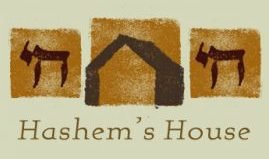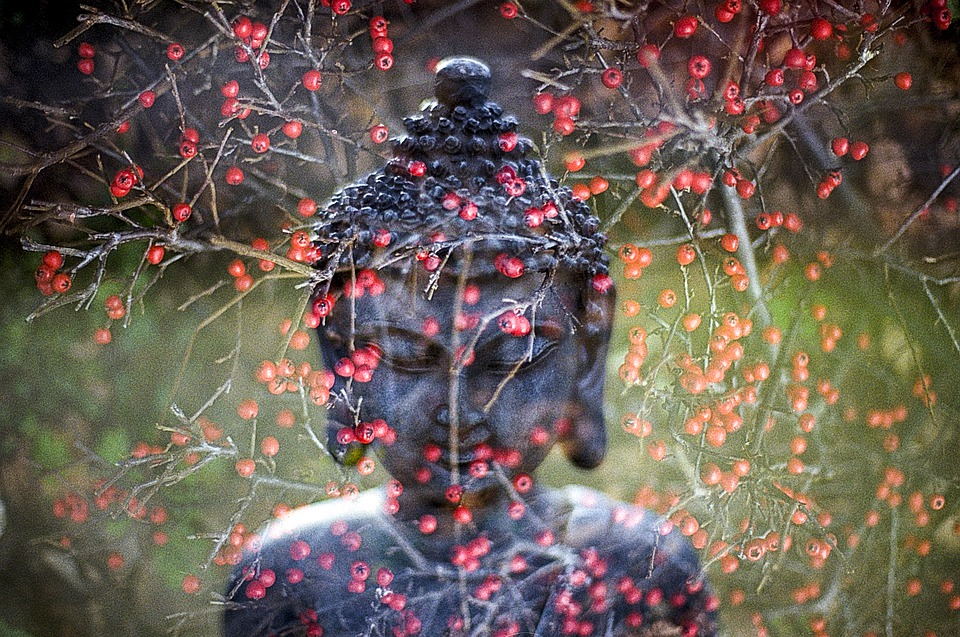Torah is the law of the Land of Israel and of the Nation of Israel, even in the Diaspora…even here in Texas. The Sages in the Midrash further explain the Five Books of Moses, the Torah, the stories that help us understand the Torah text. Each Torah portion, called a parsha, is never complete without a midrash. And each year, on the Jewish holiday of Rosh Hashanah, the head of the year, we roll the Torah scrolls back to the beginning and start once again with Bereishit, “in the beginning” and recount the story of how Hashem , Creator, built the world in seven days and then gave us the gift of Shabbat. And then shortly afterwards, on Yom Kippur, the day of repentance, we atone for all our sins. It is on this day that the Madras of the Bluebonnets is most appropriate…for on this day, after the entire month of Elul, asking all our family members, neighbors and friends to forgive us our transgressions of the year just past, we turn to Hashem, to Creator, and ask to be written and sealed in the book of life for yet another year.
You see, the land was parched, dry, burn-banned and a very brown color when a small child sat at the edge of the congregation and watched as the elders, the sages, the Light Workers and Shamans danced around the fire and prayed for rain. Their circle was full of dance and also prayer…supplications to Hashem, to Creator,
“Aveinu Malkeinu, Our Father, our King, what have we done to distress you so that the rains do not come?”
“Aveinu Malkeinu, Our Father, our King, what must we do to mediate this harsh decree?”
And so the elders danced and sang and prayed and cried unto Hashem…”Please save us, please tell us what we must do, please spare us this harsh punishment. Please send the rains.”
When the Chief Elder came to the front of the Circle, out of the Tent of Prayers. He raised his hand for silence and then spoke…
“Hashem, Creator, is angered by our selfishness towards each other, our petty fights, our lack of love, patience and understanding towards each other, even towards ourselves. Hashem, Creator, wants us to live in Peace. We must make sacrifice to atone for our sins.”
And so, on the appointed day, all sat in a circle around a roaring fire and atoned for their sin of not loving each other, not living in peace. They sat in ashes, wearing rags. They ate no food, they drank no water. They put aside all thoughts of their earthly existence and thought only of Hashem, of Creator and the expressed wishes of love of neighbor, peace in the world.
Towards the end of the day when they were very tired, very hungry and thirst burned in their throats, they each rose and threw into the fire, something of theirs that they valued highly. Some threw in pieces of coin, some precious oils or spices, some the choices pieces of food and others possessions which meant a great deal to them.
The child still sat at the edge of the circle for he had no father, no mother, and no grandparents as such to claim him and pull him close during this dark and scary hour. He was a ward of the tribe. He sat alone, frightened and unsure of what to do.
He knew Hashem, Creator, was angry. It had been many moons since rain had fallen. He knew the people of the congregation were going hungry and at times even thirsty for lack of precious water, of life-giving rain. He knew he must sacrifice something as the others were doing but he had nothing to give.
As the others left the circle and went back to their homes in family groups, the child pulled his only blanket close around him. He cried out to Hashem, to Creator…”Aveinu Malkeinu, my Father, my king…I have no mother, no father, no brothers or sisters, no grandparents…I am all alone. I am scared and yet I want to do the right thing. Help me. Send me the knowledge and the wherewithal to sacrifice and do the right thing.”
And then he fell asleep. Early the next morning, when the firewalkers and fire keepers came to get the fire going again, the young child woke exactly where he had fallen asleep. And there, next to him, on the ground, was a lovely kachina doll, so precious and beautiful, the child was overcome and overwhelmed by the gift. He didn’t know who had left it next to him…but he sensed it was meant for him. He picked it up and was about to dance around with it when a thought hit him.
The congregation had given their best to the great fire, to Hashem, to Creator. They had done it in the hopes of rain. And still the ground was parched. Perhaps, if he gave this precious gift to Hashem, to Creator, he could in some small way convince the Great One to send a more precious gift, a gift for all, not just himself…the gift of rain. So he crept close to the now raging fire and kissed the doll before tossing it into the flames. He returned to his place at the edge of the congregational circle and fell back to sleep.
Sometime later, after Sun should have risen high in the sky, the child woke to raindrops on his face. Slowly he woke as others were just coming out of their tents to see what was happening. The raindrops fell stronger, filling the empty streambeds that led to the Great River. The grasses and trees seem to wake up. The rain came harder and harder.
The child took shelter, as did the rest of the congregation, from the rain that fell most of that day and all the next.
On the third day all were awoken by the sound of birds singing and Sun shining down on their faces. And there, as far as the eye could see, was a fresh, lush blanket of beautiful blue and white flowers carpeting the land. The drought was over and in its place was the dewy presence of thousands of what we have now come to call bluebonnets. Hashem, Creator, was so pleased by the sacrifice of the little child that all was forgiven and rain was sent once again. The flowers became known as bluebonnets and they come each spring to Tejas to remind us of the little boy, of his sacrifice and of our desire to have war no more.
Now the people lived with love and peace in their hearts. War was no more and love for neighbor and love for Hashem, for Creator, became the law of the land. The child, who grew to manhood without fear or worry, became a great leader, a great Maggid, a great spiritual storyteller of his tribe.
Oh, his stories, you ask? Yes, they are mostly about where Torah meets Tejas…stories of Hashem of Creator, about love for each other, about Peace, about life…like this one, like the Midrash of the Bluebonnets.
“Aveinu Malkeinu, Our Father, Our King…Praise your glorious name and bless you for bringing us peace.”
Amen.
WHEN TORAH MEETS TEJAS: The Midrash of the Bluebonnets
Copyright: 2010 M’Rabbi-Rev. Dr. Raine Teller ©


